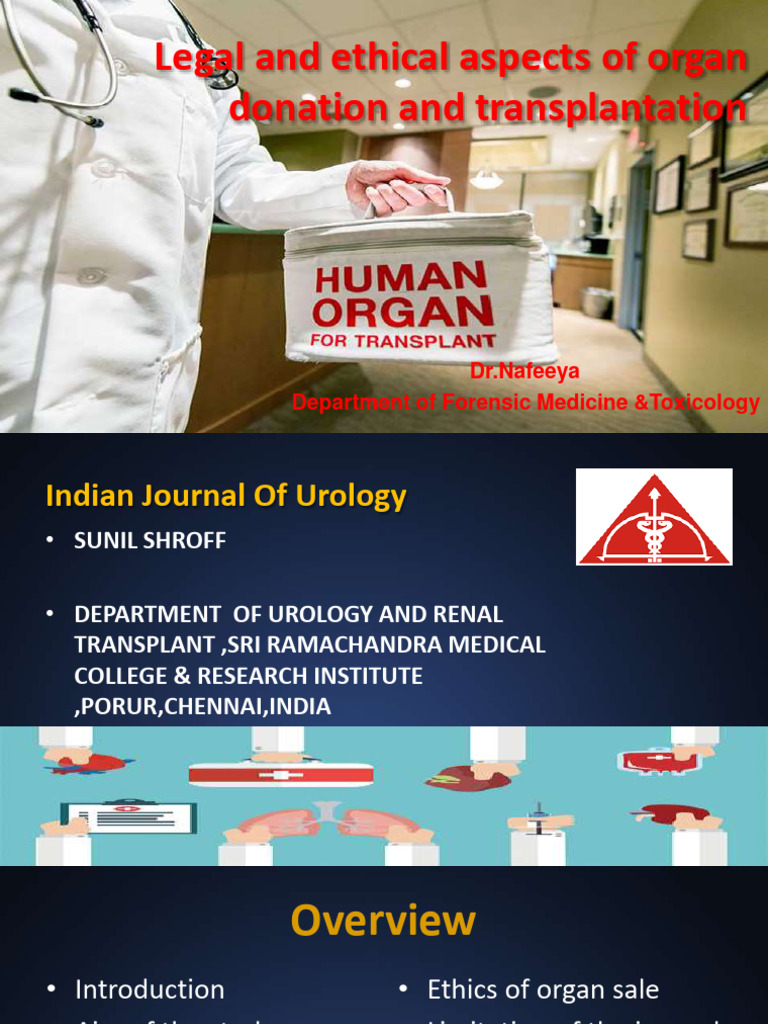The Ethics And Feasibility Of Uterus Transplantation For Transgender Mothers

Table of Contents
Ethical Considerations of Uterus Transplantation for Transgender Mothers
The ethical dimensions of uterus transplantation for transgender mothers are multifaceted and require careful consideration. Successful implementation hinges on navigating complex issues of informed consent, resource allocation, and comparing this procedure to existing alternatives like surrogacy.
Informed Consent and Patient Autonomy
Fully informed consent is paramount in any medical procedure, especially one as complex and potentially risky as uterine transplantation. Transgender women considering this procedure must receive comprehensive information about the potential benefits and drawbacks. This includes:
- Potential psychological impact: The emotional toll of the extensive medical process, potential complications, and societal stigma can be significant.
- Long-term health implications: Lifelong immunosuppression to prevent organ rejection carries its own risks and necessitates ongoing medical monitoring.
- Financial burdens: The high cost of the procedure, including surgery, hospitalization, medication, and ongoing care, can pose a significant financial barrier.
- Societal stigma: Transgender individuals may face discrimination and prejudice related to their identity and their choice to pursue this procedure.
Comprehensive counseling and ongoing support before, during, and after the procedure are crucial to ensuring patient autonomy and well-being. This support network should include medical professionals, mental health specialists, and support groups specifically addressing the needs of transgender individuals undergoing uterine transplantation.
Resource Allocation and Equity
Uterus transplantation is a resource-intensive procedure, requiring specialized surgical teams, donor organs, and extensive post-operative care. The limited availability of these resources raises crucial ethical questions about equitable access.
- Prioritization criteria: Developing fair and transparent criteria for selecting candidates for the procedure is essential to avoid disparities based on factors unrelated to medical need.
- Socioeconomic disparities: The high cost of the procedure can create significant barriers for transgender women from lower socioeconomic backgrounds, exacerbating existing health inequities.
- Geographic limitations: Access to specialized centers offering this procedure is often limited geographically, further restricting access for many transgender women.
The ethical allocation of healthcare resources must consider the principles of justice and fairness, ensuring that access to this life-changing procedure is not determined by socioeconomic status or geographic location.
Surrogacy vs. Uterus Transplantation
Uterus transplantation presents a distinct alternative to gestational surrogacy, each with its own ethical considerations:
- Costs: Uterine transplantation is significantly more expensive than surrogacy.
- Risks: Both procedures carry inherent risks, but the risks associated with transplantation are arguably higher and more complex.
- Legal complexities: Legal frameworks surrounding both procedures vary widely across jurisdictions and can be complex and challenging to navigate.
- Parental involvement: Uterus transplantation allows the transgender woman to carry and give birth to her own child, while surrogacy involves a third party carrying the pregnancy.
Carefully weighing the ethical implications of both options is essential for each individual considering motherhood.
Feasibility of Uterus Transplantation for Transgender Mothers
While ethically complex, the medical feasibility of uterus transplantation for transgender mothers also presents significant challenges. Ongoing research and advancements are crucial to improving success rates and mitigating risks.
Medical Challenges and Success Rates
The current state of uterine transplantation technology is still evolving. While there have been successful pregnancies following uterine transplantation in cisgender women, there are numerous challenges, including:
- Surgical complexities: The procedure itself is highly complex, requiring a multidisciplinary team of specialists.
- Organ availability: The scarcity of suitable donor uteruses poses a significant limitation.
- Rejection rates: The body's immune system may reject the transplanted uterus, requiring lifelong immunosuppression with its associated risks.
- Long-term health outcomes: The long-term health impacts on both the mother and the child born following a uterus transplant require ongoing study and monitoring.
Further research is necessary to refine surgical techniques, improve immunosuppression protocols, and assess long-term outcomes.
Psychological and Social Support
Comprehensive psychological and social support is crucial for transgender women undergoing uterus transplantation:
- Pre-operative preparation: Thorough psychological evaluation and preparation are essential to manage the emotional stress of the procedure.
- Post-operative recovery: Continued mental health support is needed to cope with physical recovery, potential complications, and emotional challenges.
- Social support networks: Strong family and community support can significantly improve well-being.
- Addressing stigma: Mental health professionals must be equipped to address potential social stigma and discrimination.
Access to specialized mental health resources is crucial to navigate the unique psychosocial challenges faced by transgender mothers.
Future Directions in Research and Development
The future of uterus transplantation for transgender mothers hinges on ongoing research and development:
- Improved immunosuppression: Research is focused on developing less toxic and more effective immunosuppressants to reduce the risk of rejection.
- Artificial uteruses: The development of artificial uteruses presents a potential long-term solution to address organ availability and rejection.
- Advanced surgical techniques: Refinements in surgical techniques aim to reduce complications and improve success rates.
Continued investment in research is essential to enhance the safety and feasibility of this groundbreaking procedure.
Conclusion
Uterus transplantation for transgender mothers presents a complex interplay of ethical considerations and medical feasibility. While the procedure offers a potentially life-changing opportunity for transgender women seeking motherhood, significant ethical concerns regarding informed consent, resource allocation, and comparison to alternative methods like surrogacy need careful consideration. The current limitations in medical feasibility, including success rates, organ availability, and long-term health outcomes, highlight the need for continued research and advancements. The future of uterus transplantation for transgender mothers depends on ongoing ethical debates surrounding womb transplantation and the need for more research into transgender reproductive rights. We must strive towards ethical and equitable access to reproductive healthcare for all, fostering informed discussions and advocating for policies that support the reproductive autonomy of transgender individuals.

Featured Posts
-
 Cologne Climbs To Bundesliga 2 Summit After Matchday 27
May 10, 2025
Cologne Climbs To Bundesliga 2 Summit After Matchday 27
May 10, 2025 -
 Canadian Dollars Welcome Seattle Businesses Target Sports Fans
May 10, 2025
Canadian Dollars Welcome Seattle Businesses Target Sports Fans
May 10, 2025 -
 Jennifer Anistons Gate Crash Stalker Faces Felony Charges
May 10, 2025
Jennifer Anistons Gate Crash Stalker Faces Felony Charges
May 10, 2025 -
 Melanie Griffith And Siblings Support Dakota Johnson At Film Premiere
May 10, 2025
Melanie Griffith And Siblings Support Dakota Johnson At Film Premiere
May 10, 2025 -
 Wga And Sag Aftra Strike The Complete Hollywood Shutdown
May 10, 2025
Wga And Sag Aftra Strike The Complete Hollywood Shutdown
May 10, 2025
